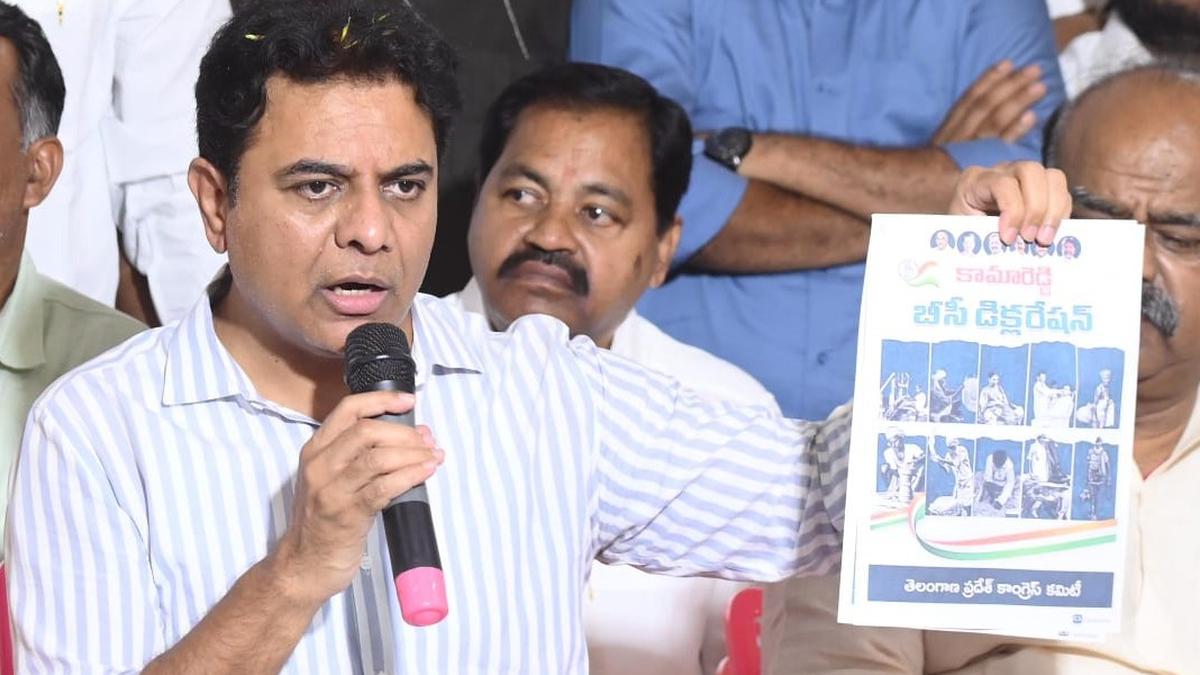
KTR questions the fate of Congress BC Declaration
The Hindu
He also suggested the government implement the BC quota as it was done in Tamil Nadu.
HYDERABAD
Instead of implementing the promises made as part of the BC Declaration of the Congress party at Kamareddy exactly a year ago, the government led by A. Revanth Reddy has discontinued existing schemes introduced by the previous government for backward classes (BCs), Bharat Rashtra Samithi (BRS) working president K.T. Rama Rao has alleged.
Addressing a press conference at Hanamkonda on Sunday, he said exactly a year after the Kamareddy Declaration, none of the promises made in the declaration were implemented, betraying the BCs like the ruling party has done with many other sections. Schemes of the BRS government like Rythu Bandhu, Dalit Bandhu and BC Bandhu were shelved by the Congress without introducing new schemes, he alleged.
The BRS leader demanded that the government conduct elections to local bodies only after the completion of the caste survey to give 42% reservation to BCs as promised. On the ongoing caste census (socio-economic community survey) exercise, Mr. Rama Rao suggested the State government to reduce the number of questions in the survey format. He also suggested the government implement the BC quota as it was done in Tamil Nadu.
He sought to know what had happened to promises such as a residential school for BCs in every mandal, BC residential degree college in every district headquarters, ₹10 lakh interest-free loan for BCs, sub-plan for BCs, expenditure of ₹20,000 crore for BCs every year and others. He pointed out that the government had allocated only ₹8,000 crore for BCs in the 2024-25 Budget.

India’s failure to tap its heritage potential highlighted at Mysore varsity’s Foundation Day lecture
Entrepreneur Harish Shah emphasizes India's untapped heritage potential at University of Mysore Foundation Day lecture.

 Run 3 Space | Play Space Running Game
Run 3 Space | Play Space Running Game Traffic Jam 3D | Online Racing Game
Traffic Jam 3D | Online Racing Game Duck Hunt | Play Old Classic Game
Duck Hunt | Play Old Classic Game










